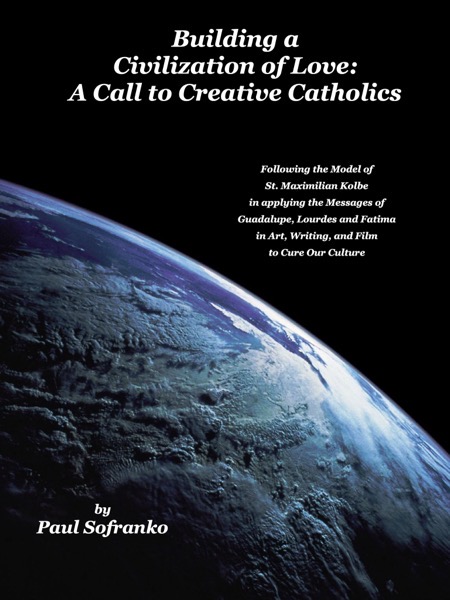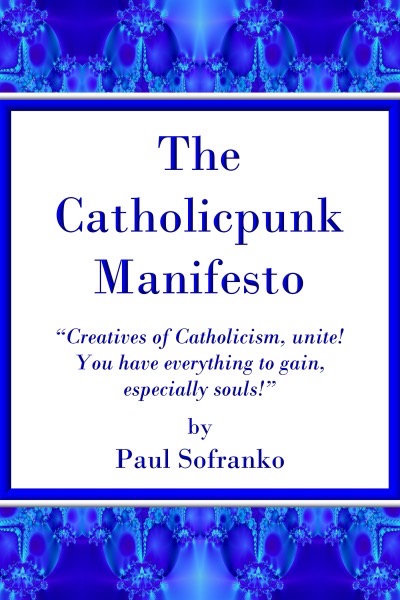“Building a Civilization of Love: A Call to Creative Catholics,” my new book exhorting Catholics to apply their faith to change the culture for the better is now LIVE and available for purchase on Amazon Kindle
“Building a Civilization of Love: A Call to Creative Catholics” is a call to arms, or rather, a call to pens, paintbrushes, and video cameras, for creative Catholics to take up St. Maximilian Maria Kolbe’s call to infiltrate pop culture and help alleviate the ills that pervade contemporary society. St. Maximilian saw back in the 1920s how the use of cinema, radio, and mass-market books was corrupting society. He thought that those same tools could be used as a countercultural force to overcome this corruption.

Furthermore, it explains through the example of three critical apparitions of the Blessed Virgin Mary at Guadalupe, Lourdes, and Fatima how she herself suggested strategies and alternatives to the dehumanizing and increasingly pagan contemporary culture we have today.
“Building a Civilization of Love: A Call to Creative Catholics” concludes by showing how the Catholic Faith can be used to provide a road map out of our current morass and a blueprint to build a more just and fair society constructed according to the Gospel of Jesus Christ, the Corporal and Spiritual Works of Mercy and other elements of traditional Catholic Social Teachings.
You can keep up to date on developments such as when it becomes available in paperback as well as through other distribution channels by checking its website or ‘liking’ its Facebook Page.
NOTE: This book is an expanded and revised version of a previously published book entitled, “The Catholicpunk Manifesto.” The text of that book is mostly contained in Chapters V and VI of this work, as well as the Appendices A through C and E, with parts of it in the Preface and earlier chapters.)
Are you a creative Catholic? ""Building a Civilization of Love: A Call to Creative Catholics," is my new book exhorting Catholics to apply their faith to change the culture for the better!
Know someone who is an alcoholic or addict? "The Sober Catholic Way" helps Catholics by describing the many ways in which their faith can assist in maintaining sobriety, and is a basic handbook on how anyone can live a sober life. . (Thank you!!)
